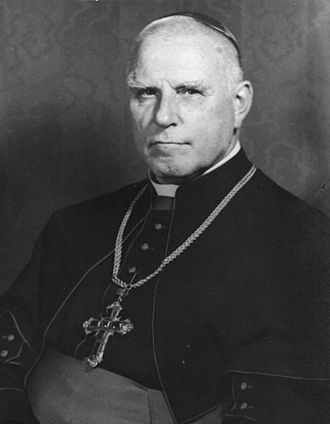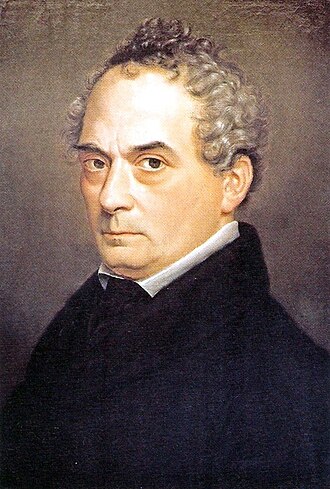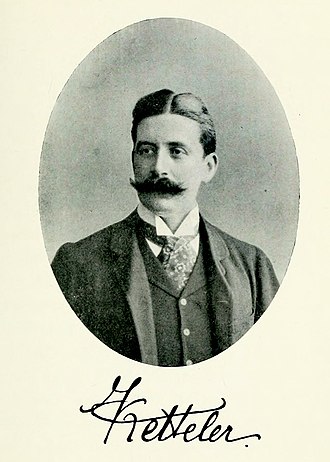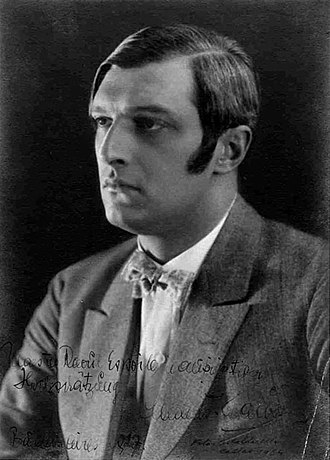Discover Your Roots
SIGN UPDiscover Your Roots
SIGN UPClemens is a name of Latin origin, primarily used for males, and it means "Mercy." Derived from Late Latin, German, and Dutch roots, Clemens signifies compassion and kindness. Notable individuals bearing the name include historical figures, such as the 4th-century Roman poet Aurelius Prudentius Clemens and German darts player Gabriel Clemens, as well as fictional characters like Dr. Jonathan Clemens in the film Alien 3. The name has also been used as a surname for various influential personalities, including American cinematographer George T. Clemens and British screenwriter Brian Clemens. Additionally, Clemens is associated with places, such as Mount Clemens in Michigan and Clemens Gardens in Minnesota. With its timeless meaning and rich historical associations, Clemens remains a significant and enduring name choice.

Clemens August Graf von Galen, also known as Clemens Augustinus Emmanuel Joseph Pius Anthonius Hubertus Marie Graf von Galen, was a prominent figure in German history. Born into the German aristocracy, he became known for his steadfast opposition to Nazi ideology and policies during World War II. As the Bishop of Münster and a cardinal of the Catholic Church, he fearlessly led Catholic protests against Nazi euthanasia and condemned the persecution of the Church in Nazi Germany. Von Galen's unwavering stance against the Nazi regime earned him widespread admiration and respect. His outspoken criticism of Hitler's movement, along with his role in drafting Pope Pius XI's anti-Nazi encyclical, Mit brennender Sorge, solidified his legacy as a courageous advocate for justice and morality in the face of tyranny. His beatification by Pope Benedict XVI in 2005 further underscored his enduring impact on both the Catholic faith and the broader historical narrative of resistance against oppressive regimes. Clemens August Graf von Galen's legacy continues to inspire and serve as a testament to the enduring power of moral courage in the most challenging of times.

Clemens Wenzeslaus Brentano, also known as Klemens, was a prominent figure of German Romanticism, renowned for his contributions to poetry and novels. Born on September 9, 1778, in Frankfurt to a wealthy merchant family, Brentano's literary pursuits were influenced by his associations with notable figures such as Goethe, Friedrich Schlegel, and Wieland. His marriage to writer Sophie Mereau and subsequent collaboration with Achim von Arnim marked significant periods in his life. Brentano's works, characterized by fantastical imagery and unique expressions, include the collection of Romanzen vom Rosenkranz and the captivating short story "Geschichte vom braven Kasperl und dem schönen Annerl." His dedication to the Catholic faith led to his involvement with the visionary nun, Blessed Anne Catherine Emmerich, and the preparation of her revelations. Brentano's legacy lives on through the Clemens Brentano prize awarded for German literature and the musical settings of his poems by renowned composers like Richard Strauss. His impact is further immortalized in Thomas Mann's novel "Doctor Faustus," where a cycle of thirteen songs based on Brentano's poems is highlighted as a significant early work of the composer protagonist.

Clemens Westerhof, born on 3 May 1940, is a renowned Dutch football manager with a successful career in various African football positions since 1989. He is best known for his remarkable achievements with the Nigerian national team. During his tenure, the Super Eagles clinched the 1994 African Cup of Nations and secured a spot in the second round of the FIFA World Cup. Westerhof's coaching journey commenced as an assistant coach in Feyenoord in the Dutch Eredivisie and later expanded to include coaching roles with Vitesse Arnhem, the Zimbabwean national team, and several clubs in South Africa's Premier Soccer League. His influence extended beyond coaching, serving as a technical director for various football academies and clubs in Zimbabwe. Westerhof's impact on Nigerian football is unparalleled, as he elevated the team to a perennial powerhouse in African football, demonstrating their ability to compete on the global stage. He nurtured and showcased talents like Jay-Jay Okocha, Nwankwo Kanu, and Rashidi Yekini, who went on to have successful careers with prominent European clubs, marking a "golden" era in Nigerian football. Despite his accolades, Westerhof also faced criticism from players, including striker Rashidi Yekini, following Nigeria's exit from the 1994 FIFA World Cup.

Clemens August Freiherr von Ketteler (22 November 1853 – 20 June 1900) was a German career diplomat who tragically lost his life during the Boxer Rebellion. Born into a noble Münsterland family in Germany, Ketteler embarked on a distinguished career that led him to various diplomatic postings around the world. His service included roles such as an interpreter in German consulates in Canton and Tianjin, as well as appointments in Washington, D.C., and Mexico. Returning to China as Plenipotentiary at Beijing in 1899, Ketteler found himself in the midst of the Boxer Rebellion. Despite his efforts to address the dangerous situation for Europeans, he encountered a violent and tragic end when he was shot at point blank range by a Chinese assailant. His untimely death marked the end of a promising diplomatic career, leaving behind a grieving widow, Matilda Cass Ledyard, whom he had married in 1897. Ketteler's legacy lives on through the memory of his dedicated service and the enduring impact of his work in international diplomacy.

Clemens Heinrich Krauss (31 March 1893 – 16 May 1954) was an Austrian conductor and opera impresario known for his association with the music of Richard Strauss, Johann Strauss, and Richard Wagner. He is renowned for founding and conducting the New Year's Concert of the Vienna Philharmonic until 1954.Born in Vienna, Krauss showed early musical talent, graduating from the Vienna Conservatory in 1912. He embarked on his conducting career, making significant contributions to various regional centers before joining the Vienna State Opera and the Vienna Singakademie. Krauss made his debut at the Salzburg Festival in 1926 and went on to conduct in the United States, becoming the director of the Vienna State Opera in 1929. He further solidified his reputation as the music director of the Vienna Philharmonic and as a regular conductor at the Salzburg Festival.Despite facing challenges and intrigue in Vienna, Krauss's commitment to contemporary music and his involvement in helping Jews escape from Germany during the 1930s are noteworthy. He was appointed Intendant of the National Theatre Munich in 1937, becoming a close friend of Richard Strauss and premiering several of Strauss's operas.Clemens Heinrich Krauss's legacy as a conductor and his contributions to the world of opera and music remain influential and celebrated to this day.
All images displayed on this page are sourced from Wikipedia or Wikimedia Commons.We use these images under their respective Creative Commons or public domain licenses. Wherever applicable, author attributions and license information are provided. If you believe an image is used incorrectly or outside its license terms, please contact us so that we can review and correct the issue.